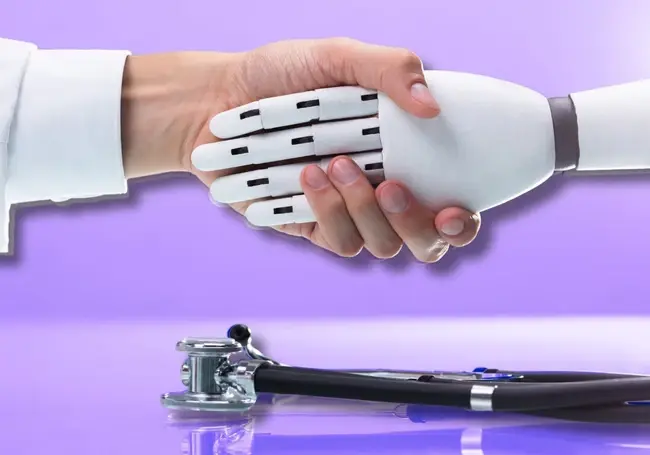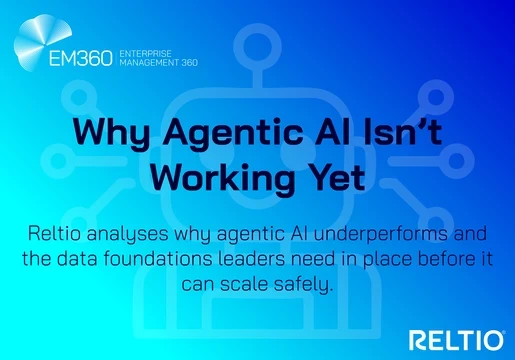Microsoft has launched new AI tools that they hope will revolutionize the healthcare industry to aid both doctors and nurses.
The new healthcare AI announcements were made as part of Microsoft Build, the company’s annual developer conference. It serves as a platform for Microsoft to announce new products and features as well as being a networking opportunity for software engineers and web developers.
Microsoft made four key announcements that they hope will have a big impact on the healthcare sector. New AI models will come to Azure AI Studio, new capabilities for healthcare in Microsoft Fabric, a healthcare agent service in Copilot Studio and an AI workflow for nurses all housed within Microsoft Cloud for Healthcare.

What are the New Healthcare AI Models in Azure AI Studio?
Microsoft's new healthcare AI Models are a collection of multi model medical imaging foundation models available through Azure AI Studio. The new models have been developed in partnership with partners that are leading AI integration in healthcare like Paige.AI and Providence.
Read: Google's Med-Gemini AI is here. Will it Revolutionize Healthcare?
The new models will allow healthcare providers to analyze diverse data types including medical imaging, clinical records and genomics.
Microsoft envisions healthcare organizations using the advanced models to rapidly build, fine tune and deploy AI solutions that can be tailored to their needs and miminse compute and data requirements associated with building models from scratch.
How Can Microsoft Fabric be Used in Healthcare?
Healthcare data is difficult to store and manage because of its unstructured nature as well as historic limitations of data management systems. This limits the data demonstrating a comprehensive understanding of patient experiences as well as preventing access to potentially valuable insights.
Microsoft hopes that by utilizing healthcare solutions in Microsoft Fabric organizations can overcome these barriers. They envision resharing how users access, interact with and manage data within one unified platform that is powered by AI.
Several new capabilities within the healthcare data solutions in Microsoft data solutions have launched that are set to increase the impact on organizations and lessen the burden on providers.
Conversational data integration will allow data, such as patient conversations, from DAX Copilot to the Fabric platform. This means that users can leverage native tools in Azure and Fabric to analyze data and combine it with other data to generate comprehensive insights.
Centers for Medicare & Medicaid Services (CMS) claim and claim line feed (CCLF) data ingestion will now be streamlined and unlock actionable insights on individual patients and across populations.
Social determinants of health (SDOH) public datasets can be ingested, persisted, harmonized and consumed to enable organizations to identify risks and health-related social needs to aid the work in creating equitable healthcare.
Unified healthcare data and care management analytical templates can now be leveraged to identify risk and optimize treatment plans.
Finally, enhancements to data discovery and cohorting will allow for an integrated workflow that can be used to create, manage, analyze and share patient cohorts.
What is the Healthcare Agent Service in Copilot Studio?
Microsofts healthcare agent service in Copilot will help address administrative challenges across the healthcare field. This includes helping to address workforce shortages, patient care demands and rising costs.
Copilot agents can be built for appointment scheduling, clinical trial matching and patient triaging. Healthcare providers can use the agent service to improve workflows and crucially empower healthcare professionals in their decision making.
Cleveland Clinic has been an early adopter of the healthcare agent service and has worked alongside Microsoft to optimize the tool in the healthcare setting. The organization has confirmed that it has aided in enhanced patient experiences as well as operational efficiency.
What is Microsoft's AI Workflow for Nurses?
The pressure across the nursing profession is immense and only building with more people leaving the profession due to burnout.
Microsoft's AI solution, created in partnership with Epic, uses ambient technology to address nursing documentation. It will draft flowsheets for review and allow nurses to focus on less paperwork and more patient care.
“For nurses, the integration of AI-driven solutions into our workflows is a game changer,” confirmed Terry McDonnell, DNP, ANCP-BC, senior vice president and chief nurse executive, Duke University Health System, vice dean for Clinical Affairs, Duke University School of Nursing, Duke Health. “It allows us to focus more on patient care rather than the administrative burden of documentation. By automating tedious tasks, Microsoft’s ambient AI solution helps alleviate burnout and gives us more time to connect with our patients at the bedside, where we truly make a difference.”
What’s Next for Microsoft Cloud for Healthcare?
AI is opening up new and exciting possibilities across the healthcare industry. However adoption will likely be slow as due to the lack of time practitioners have to alter and adapt to new technologies and workflows.
There will likely be resistance to the implementation of AI due to safety concerns on how the models ingest private information and access sensitive data. The industry faces more challenges than every with large scale cyber attacks such as those on Change, McLaren and the NHS already threatening patient safety.
It is also crucial to understand and address the ethical implications and potential biases associated with AI to ensure its universal benefit in the healthcare space rather than favouring specific demographics that are more prevalent in training data.







Comments ( 0 )